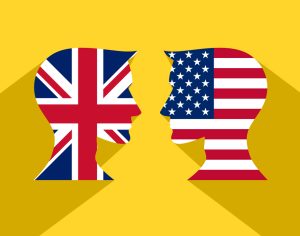Several UK and US businesses are fearing a negative
economic outlook due to Brexit, the US-China trade war, climate change and
consumer shopping habits, a poll by finance provider Stenn has revealed
With Brexit drawing nearer, UK businesses around the world are preparing for an inevitable outcome while political tensions across the world continue to heighten. The US-China trade war, climate change and consumers’ changing habits are just a few of the wider issues on a global scale that businesses fear could put their economy on the brink. With all the contributing factors at play, just under half of UK and US businesses expect their countries to go into recession in 2020, according to the latest research – however, Chinese firms foresee substantial economic growth.
46% of UK firms and 45% of US firms predict their country to slide into a major recession this year, a poll by finance provider Stenn has revealed. 14% of these UK businesses expect Britain’s economy to slow down by 1-3% while just 6% believe it will stay stagnant. The negative outlook comes after the Office of National Statistics reported UK’s economic growth at its slowest annual rate in almost a decade, dropping from 1.3% growth to 1% in the last three months of 2019.
However, US firms were slightly more confident, with only one in five expecting their country’s economy to fall behind in 2020. The US GDP increased by 2.1 percent in the second quarter of 2019 according to national figures along with 145,000 new jobs allocated in December, it is no surprise some US businesses are slightly more optimistic. In addition, US President Donald Trump has also announced a phase one trade deal with China to be signed on 15th January. However, the median US economic forecaster currently estimates a 35% probability that a recession will begin this year, which could be a cause of concern to hundreds of firms across the country.
Despite the ongoing US-China trade war, 93% of Chinese firms are confident their economy will grow, with a quarter of them (25%) expecting it to boom by 4-5% while 40% expect a 6-7% rise. With favourable policies in place, China’s economy has seen substantial growth over the past few decades with its high-skilled and low-cost human resources.
As global tensions continue to rise, many companies are even predicting a world-wide economic crisis this year. 37% of UK firms and 35% of US firms expect the world to go into a recession by 2020, with majority of these businesses citing increased geopolitical tensions (such as trade tariffs), Brexit, and consumers’ changing shopping habits as the main causes for concern. 65% of UK businesses said Brexit was a major risk for a recession, 50% pinpointed climate change while 48% were worried about customers choosing to shop online rather than in store. 43% cited increased cyber threats and breaches that run the risk of crashing the economy.
The study also showed how US firms had similar viewpoints. 54% of US companies said increased geopolitical tension, increased environmental concerns, and changing consumer behavior to businesses were all equal risk factors for a 2020 recession. A further half (51%) also viewed cyber threats or data breaches as an ongoing issue.
Meanwhile, a whopping 65% of Chinese firms cited changing consumer behavior as the biggest risk for a global crisis this year, followed by increased geopolitical tensions (62%), as firms navigate the threat of the US-China trade war. The poll interviewed over 700 senior executives from medium-large sized businesses across the UK, US and China.
“2019 was weaker than expected and the stakes are only higher for the year ahead,” Dr. Kerstin Braun, President of Stenn Group, said. “Trump has been playing games with global trade and while the Chinese are confident their economy will grow as it moves beyond the US-China trade war, it’s a very different story in the UK and US.
“Boris Johnson’s election result provided some much-needed solidity the UK has been craving and with Brexit confirmed to go ahead, businesses can begin to see a future. But the prolonged uncertainty has been battling the UK economy and many businesses are concerned Brexit could cause the economy to shrink in 2020. It is vital UK firms start investing again as they exit Brexit limbo. This is critical for long-term growth. If current political and economic uncertainties ease, we could see a gradual revival in activity over the course of the year, likely by 1 or 2%.
“At the same time, the US is exposed to the effects of Trump’s unpredictable trade actions. While some fundamentals like employment are good, there are enough economic red flags to signal weakness in the second half of 2020. For example, corporate and government debt levels are high and personal loans are up more than 10% from a year ago. This makes the economy vulnerable to shocks and dependent on the Fed to keep interest rates low.
“The Chinese economy has been growing at rates above +6-7% since the early 1990s, so the fact the majority are optimistic this will continue in 2020 is a good sign. A quarter still expect slower growth than normal, at a rate of 4-5%, which comes after China’s economic growth rate slowed to a near 30-year low in Q3 2019, affecting people via the jobs market.
“What’s most worrisome is global trade. The capricious US-China tariff war has turned into political theatre at the expense of real businesses, while trade in and out of the UK after Brexit is still under threat. The uncertainty impacts short-term margins and long-term investment plans for companies with international supply chains.”
With global uncertainty at an all-time high, the world continues to face one of its the most politically tense periods in the past decade. In a West versus the East scenario, it comes as no surprise the UK and US are sceptical about their economic outlook, as Brexit and an ongoing US-China trade war continue to put businesses under threat.
Share via:








































